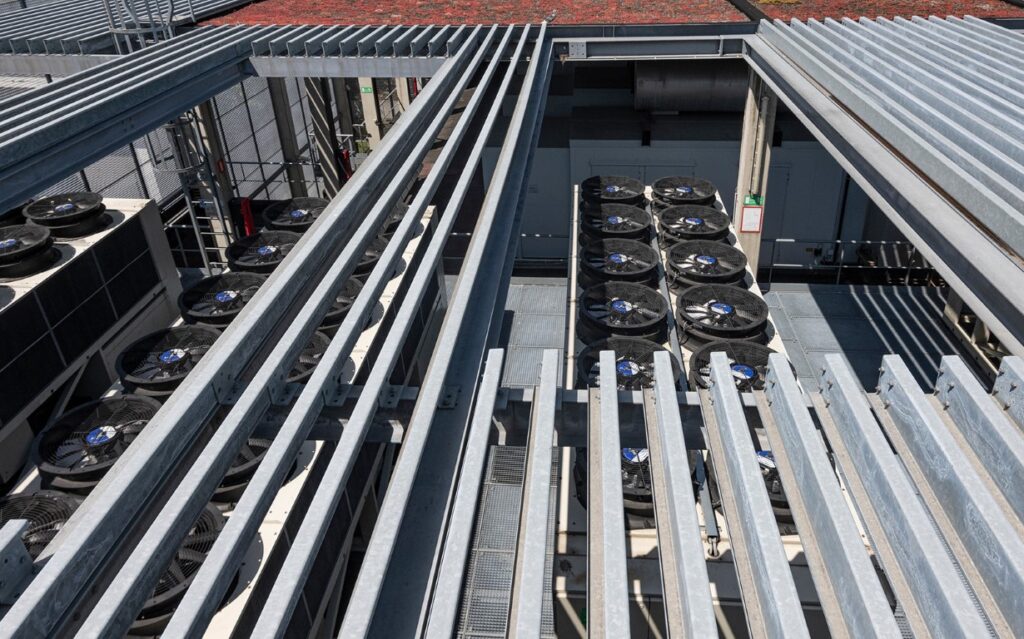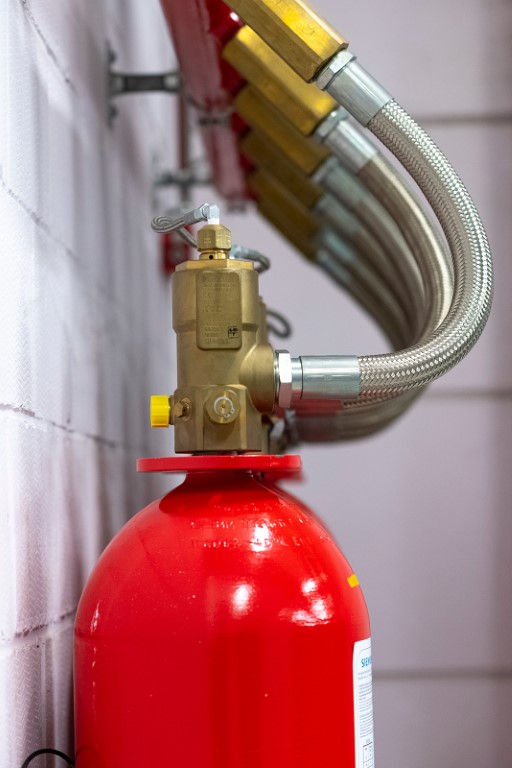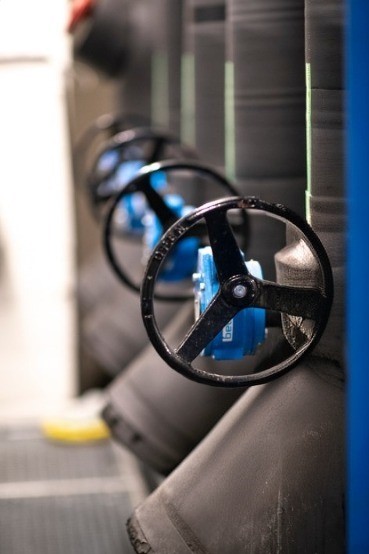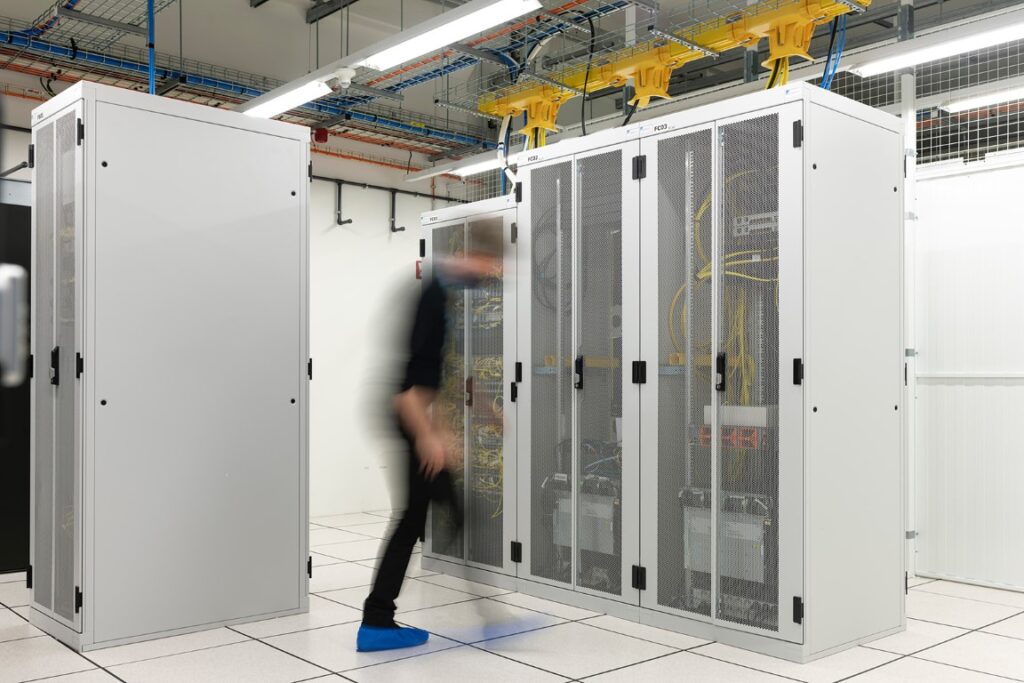Critical Infrastructure Manager

Data centers are filled with servers and technology that must be reliable 24/7, 365 days a year. To ensure that that’s possible, data centers don’t just require electricity and connectivity, they also need capable staff. There are many important jobs to be done in a data center, including that of a Critical Infrastructure Manager. This position may sometimes be referred to as ‘facilities manager’, but you will find out below why the ‘critical infrastructure’ part is in fact critical to the job title.
The critical infrastructure of a data center
The main responsibility of a Critical Infrastructure Manager, supported by a team, is to ensure a good uptime for the data center. But what infrastructure is critical to maintaining that uptime? It can be split into 3 categories:
1. POWER
Data centers require a continuous power supply to ensure uninterrupted service. Any power outage can lead to service downtime, affecting countless businesses and users dependent on the data center’s resources.
It is the critical infrastructure team’s responsibility to make sure there is a constant power supply, or in the event of an outage, that the backup power supply takes over so there are no interruptions for the customer. That backup supply usually consists of UPS’ (uninterruptible power supply) that will take over immediately until the backup generators are up and running and will take over in turn.
2. COOLING
Data center equipment generates significant amounts of heat, especially the servers themselves. Without effective cooling, this heat buildup can lead to hardware malfunction, reduced performance, and decreased lifespan of equipment.
Cooling systems must be managed to maintain optimal temperature and humidity levels, which is another responsibility of the critical infrastructure team.

3. FIRE DETECTION
The high concentration of electrical equipment in data centers poses a significant fire risk. Early fire detection systems are critical for identifying potential fires before they can spread, minimizing damage and downtime.
In the event of a fire, a rapid and effective suppression system is necessary to protect both the physical equipment and the invaluable data stored within the data center. These systems must be designed to extinguish fires without damaging the sensitive electronics. The critical infrastructure team oversees the proper functioning of those systems.


For these 3 categories, the critical infrastructure team manages preventive and reactive maintenance of all installations. Preventive maintenance is a proactive strategy to regularly service and maintain equipment to prevent failures, ensuring reliability and efficiency. Reactive maintenance addresses equipment failures as they occur. The critical infrastructure team will often do the first intervention themselves, but further troubleshooting and maintenance might also be executed by partners. Another important part of the job is monthly testing to check whether all the backup systems are functional, so they can be reliable in case of incidents. Lastly the critical infrastructure team will also monitor the installations, which can lead to a faster discovery of technical issues and more efficient and sustainable use.
Critical Infrastructure Manager
What makes a Critical Infrastructure Manager in a data center so unique compared to similar roles in other companies? The exact critical nature of their work. A power failure in a data center doesn’t just plunge the room into darkness; it can disrupt entire businesses, triggering ripple effects far beyond the data center’s confines. Unlike in an office environment, where air conditioning might be a luxury, in a data center, cooling is a necessity to protect expensive equipment from overheating and potential damage.
Data centers are distinctive in their universal adoption of redundant systems, ensuring that for every critical component, there’s an identical backup ready to take over in case of failure. This redundancy not only offers peace of mind in operational stability but also significantly reduces the risk to clients since any issue can be seamlessly managed by the backup. This setup allows for more thorough analysis and response to issues, a luxury not afforded without such backups. However, this redundancy requires increased maintenance and testing to ensure each component’s reliability and avert more significant issues.

A Critical Infrastructure Manager in a data center understands that thorough preparation is key to success. They develop comprehensive procedures for both maintenance and reactive interventions, with each step carefully planned to minimise the chance of incidents. The better the preparation, the lower the risk of incidents. But if an incident occurs, it is also part of the job to respond immediately and ensure that uptime is restored as quickly as possible.
The job entails ongoing risk assessments, focusing not just on safety but also on how maintenance might affect customer service. The importance of risk analysis cannot be overstated—it’s all too easy to overlook critical details without a comprehensive checklist. Special permits are drafted for various tasks, from roof work, to working beneath the floor, to handling hazardous materials, ensuring every precaution is detailed. This meticulous approach ensures safety and efficiency, adhering to a principle that experience should never lead to complacency.
For new data centers, sites, or installations, fresh procedures must be devised from the ground up. While templates can guide the process, no detail should be overlooked. Subsequent annual maintenance may follow a set pattern, but initial setup demands thorough groundwork. Each intervention requires a fresh approach, with constant consideration for evolving technologies and methods, emphasizing the need for adaptability.
The role of a Critical Infrastructure Manager spans both strategic planning at the desk and hands-on engagement in the field. While much of the planning and oversight can be done digitally, ensuring compliance and readiness, firsthand knowledge of the installations is crucial. In the event of an incident, immediate and informed action is necessary, highlighting the dual nature of this role which blends managerial duties with technical expertise.
Everyone in a service environment knows that planning is important, but the unforeseen must always be accounted for. This is where procedures and risk analyses really come into play. Additionally, the strategic scheduling of preventive maintenance plays a key role in mitigating potential issues before they arise.
In a time when reliance on digital services is ever-growing, the significance of the Critical Infrastructure Manager for data centers and their specialised knowledge cannot be overstated. The Critical Infrastructure Manager must possess a deep understanding of data center operations, strong problem-solving skills, and the ability to anticipate and mitigate risks that could impact the data center’s operations.
